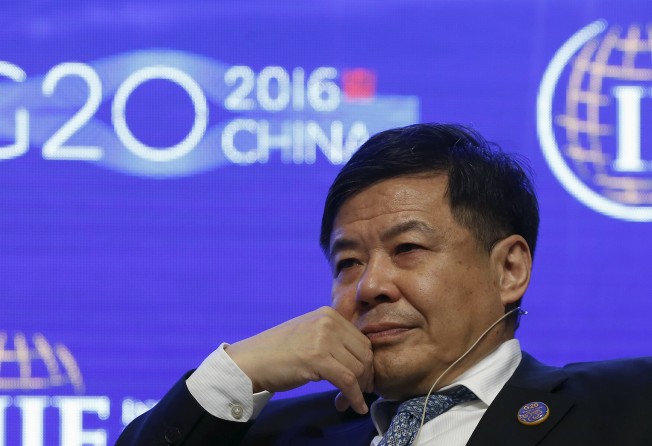China promises to be more open about currency policy to help ensure stability of global economy

China has pledged to improve communication with the market and enhance coordination with other major economies to keep the yuan stable.
Finance vice-minister Zhu Guangyao said ensuring the renminbi’s stability was important to ward off financial risks facing the global economy.
Zhu was speaking ahead of a G20 meeting of finance ministers and central bankers in Shanghai.
Analysts say currency volatility is a major threat to the world economy with the yuan’s instability playing a significant role in a global market rout last year.
China’s yuan devaluation in August fuelled fears of a currency war, with concerns other nations might reduce the value of their currencies to compete with the lower cost of Chinese goods and exports.
“One of the major tasks this year is to avoid financial risks in some regions,” Zhu told a conference organised by the Institute of International Finance on Thursday.
“China recognises the risks the global economy faces and will do our utmost to better coordinate with G20 members countries to shore up confidence in the global economy.”
Efforts to combat a global slowdown amid the market turmoil are expected to be the main topic at the G20 meeting on Friday and Saturday.
Zhu said the government would improve transparency in its economic policymaking as it realised the importance of China to the rest of the global economy.
But central bank vice-governor Yi Gang told the same conference that investors could expect more fluctuations in the value of the yuan against the US dollar as the People’s Bank of China placed more emphasis on measuring the renminbi’s value against a basket of currencies.
Zhu also said Beijing would increase the budget deficit this year, the latest sign that the government will bank on massive fiscal spending to buoy its slowing economy. China’s economy grew at the slowest rate in a quarter of a century last year.
“China still has potential to raise the fiscal deficit,” he said, adding that details would be unveiled during the National People’s Congress in Beijing next month.
Zhu’s remarks came after the central bank issued a research paper proposing a 4 per cent fiscal deficit this year.
Shen Songcheng, director of the PBOC’s survey and statistics department, wrote that it was possible to raise the fiscal deficit to 4 per cent, or even higher.
Premier Li Keqiang predicted last March that China’s 2015 deficit would account for 2.3 per cent of gross domestic product.
Analysts estimate the deficit actually hit about 3.5 per cent.
China’s fiscal spending jumped 15.8 per cent to 17.6 trillion yuan (HK$21 trillion) last year. Fiscal revenue rose 8.4 per cent to 15.2 trillion yuan, according to the Ministry of Finance.